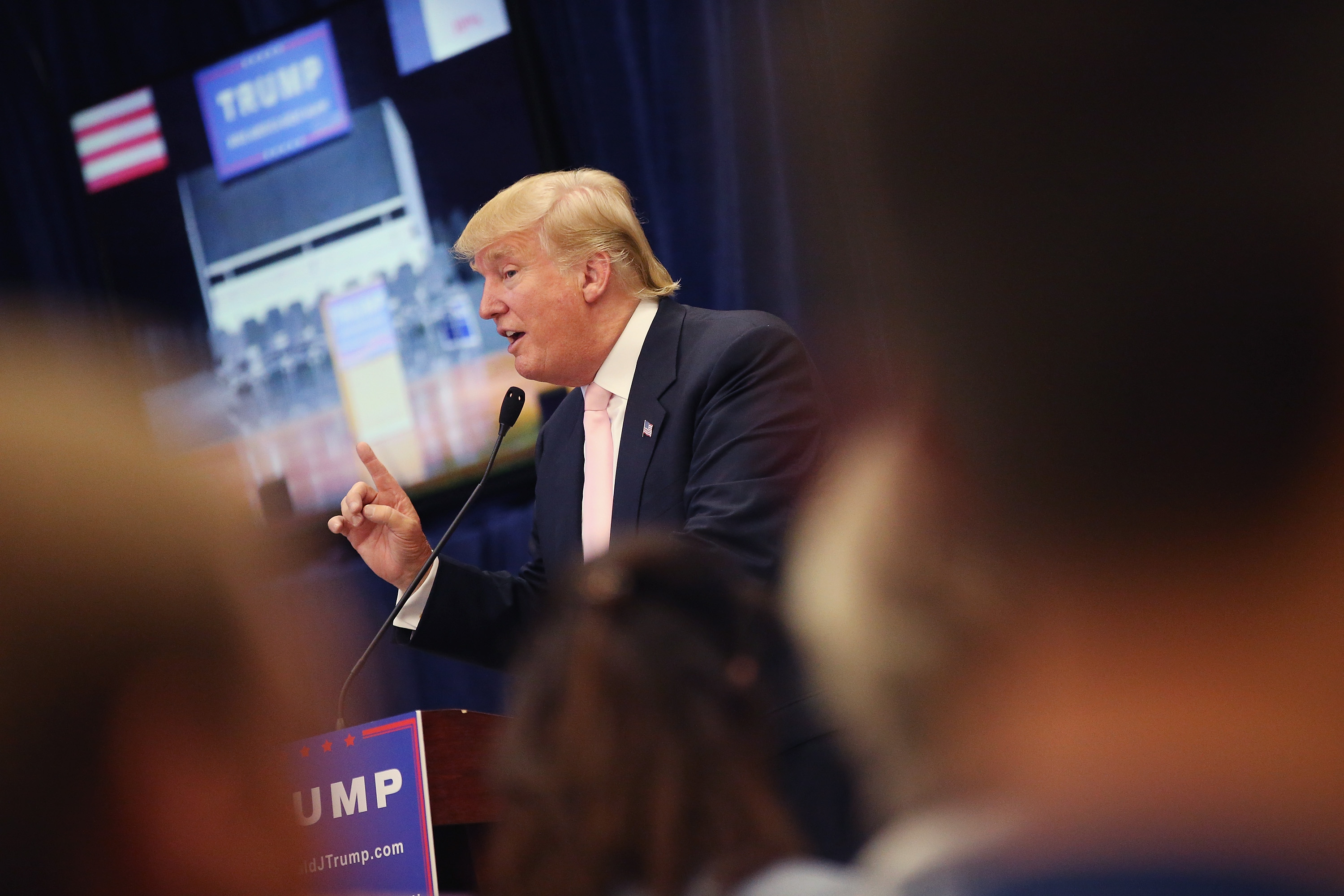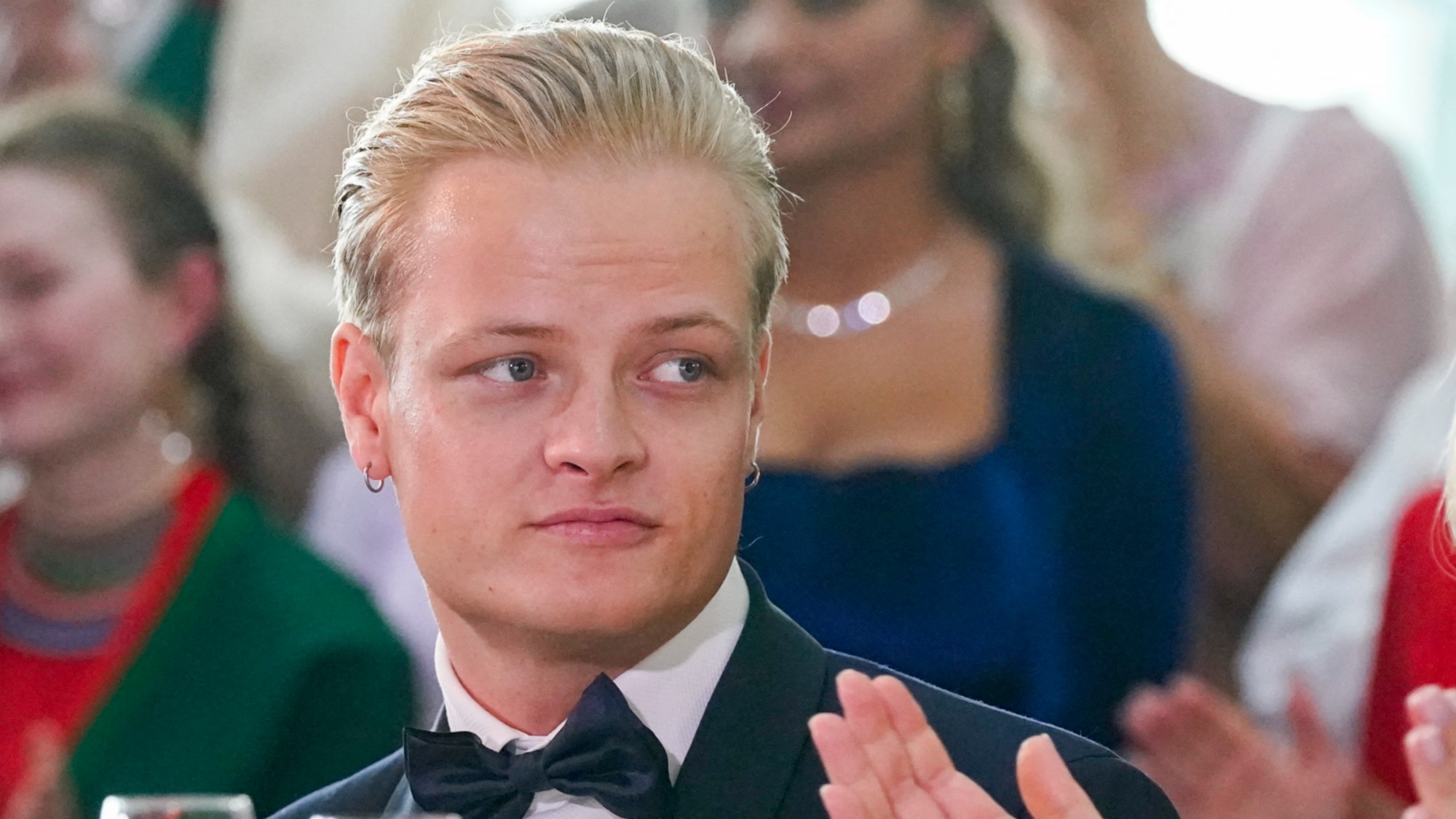Sorry, Donald Trump: America needs birthright citizenship
It's the thing that makes America great and exceptional. What's not to like?


Conservatives usually believe in American exceptionalism, and in upholding the Constitution. Which is why it's strange to see so much conservative ebullience over Donald Trump's proposal to end birthright citizenship.
It's not news that there are a significant number of Americans who are anxious about immigration — illegal and otherwise — and that they exert considerable political clout (though ultimately less than is sometimes breathlessly suggested). And many of those people fret about so-called "anchor babies." The problem with "anchor babies" is that they're a myth. (Trust me. As a Frenchman with a fertile wife who often wanted to emigrate to the U.S., I did the research.)
This fight therefore nicely serves to highlight the fact that most (though not all) fears related to immigration belong more to the realm of fantasy than reality.
The Week
Escape your echo chamber. Get the facts behind the news, plus analysis from multiple perspectives.

Sign up for The Week's Free Newsletters
From our morning news briefing to a weekly Good News Newsletter, get the best of The Week delivered directly to your inbox.
From our morning news briefing to a weekly Good News Newsletter, get the best of The Week delivered directly to your inbox.
But it also illustrates something else: how the restrictionist position is all too often born of a lack of confidence in the American project.
After all, the two are inseparable. Birthright citizenship says, quite explicitly, "The American project is so strong, our culture is so strong, our values are so strong, that any baby born on our soil, no matter where his parents come from, will ultimately grow up to be a well-adjusted American, so that we don't need to wait for him to prove himself to extend citizenship."
In contrast, the movement to end birthright citizenship says, essentially, "Nope, sorry, that's not true. We can't do it. We can't do it anymore."
Which, again, goes to highlight the tension between extreme restrictionism in immigration and conservative values. Conservatives typically display above average, not below average, confidence in the American project and in the capacity of judicious applications of American patriotism to solve problems.
A free daily email with the biggest news stories of the day – and the best features from TheWeek.com
There's another funny intersection between birthright citizenship and the conservative worldview, and I have an unusual window into it. As I said, I'm a Frenchman. France and the United States are unusual in both being nations explicitly founded (or refounded) on Enlightenment values. And one trait they share is that they both instituted birthright citizenship.
One reason was the Enlightenment-driven belief, over and against the feudalism that prevailed in most places in Europe, that citizenship depended on a social contract, not a bloodline, and that your parentage should not therefore change your citizenship status.
But there was another reason (and here lies an entire critique of the Enlightenment, which is a whole 'nother can of worms), a reason we're not too comfortable with today: empire. The institution of birthright citizenship in France was enacted by France's revolutionary government and ratified by Napoleon's civil code, partly so citizens could be pressed into duty in the army. As France expanded, so did its citizenship rolls, as did its citizen army, as did its military might, all in a virtuous cycle (virtuous, at least, from Napoleon's perspective).
The U.S. enacted birthright citizenship for different reasons, to ensure the citizenship of freed slaves after the Civil War. But the point is that birthright citizenship is historically associated with confidence in the national project, perhaps even supreme confidence.
Oh, and how did it do in France? Well, we got scared of immigrants, so we got rid of birthright citizenship piecemeal over the past few decades.
So here's the other odd thing about the birthright citizenship debate: American conservatives saying they want to be more like France. Kudos!
Pascal-Emmanuel Gobry is a writer and fellow at the Ethics and Public Policy Center. His writing has appeared at Forbes, The Atlantic, First Things, Commentary Magazine, The Daily Beast, The Federalist, Quartz, and other places. He lives in Paris with his beloved wife and daughter.
-
 Norway’s scandal-hit royals
Norway’s scandal-hit royalsIn the Spotlight Rape trial of Marius Borg Høiby, son of the crown princess, adds to royal family's ‘already considerable woes’
-
 The Beckhams: the feud dividing Britain
The Beckhams: the feud dividing BritainIn the Spotlight ‘Civil war’ between the Beckhams and their estranged son ‘resonates’ with families across the country
-
 Quiz of The Week: 24 – 30 January
Quiz of The Week: 24 – 30 JanuaryQuiz Have you been paying attention to The Week’s news?
-
 The billionaires’ wealth tax: a catastrophe for California?
The billionaires’ wealth tax: a catastrophe for California?Talking Point Peter Thiel and Larry Page preparing to change state residency
-
 Bari Weiss’ ‘60 Minutes’ scandal is about more than one report
Bari Weiss’ ‘60 Minutes’ scandal is about more than one reportIN THE SPOTLIGHT By blocking an approved segment on a controversial prison holding US deportees in El Salvador, the editor-in-chief of CBS News has become the main story
-
 Has Zohran Mamdani shown the Democrats how to win again?
Has Zohran Mamdani shown the Democrats how to win again?Today’s Big Question New York City mayoral election touted as victory for left-wing populists but moderate centrist wins elsewhere present more complex path for Democratic Party
-
 Millions turn out for anti-Trump ‘No Kings’ rallies
Millions turn out for anti-Trump ‘No Kings’ ralliesSpeed Read An estimated 7 million people participated, 2 million more than at the first ‘No Kings’ protest in June
-
 Ghislaine Maxwell: angling for a Trump pardon
Ghislaine Maxwell: angling for a Trump pardonTalking Point Convicted sex trafficker's testimony could shed new light on president's links to Jeffrey Epstein
-
 The last words and final moments of 40 presidents
The last words and final moments of 40 presidentsThe Explainer Some are eloquent quotes worthy of the holders of the highest office in the nation, and others... aren't
-
 The JFK files: the truth at last?
The JFK files: the truth at last?In The Spotlight More than 64,000 previously classified documents relating the 1963 assassination of John F. Kennedy have been released by the Trump administration
-
 'Seriously, not literally': how should the world take Donald Trump?
'Seriously, not literally': how should the world take Donald Trump?Today's big question White House rhetoric and reality look likely to become increasingly blurred
